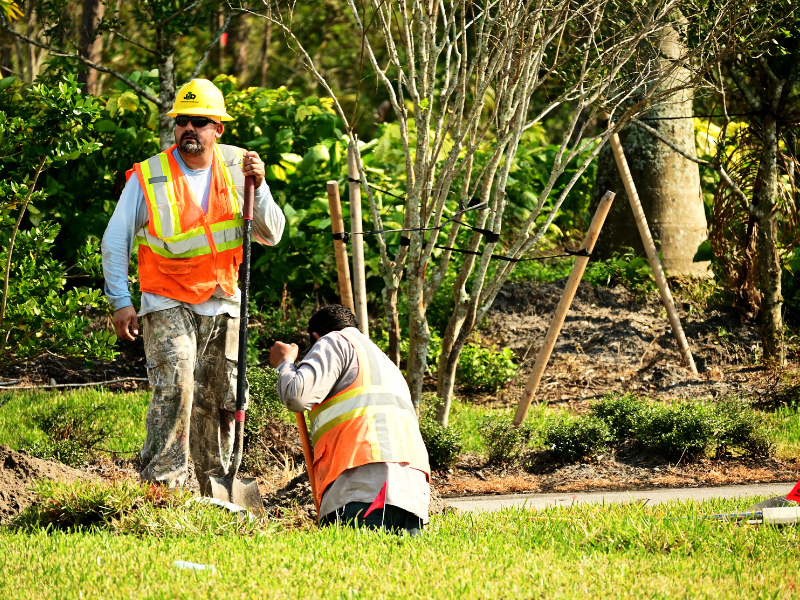What Three Types of Issues Are Not Covered by Workers Compensation?
Most businesses have some degree of risk associated with them, and workers compensation is a way for employers to protect their employees in the event of an on-the-job injury. But what happens when an employee gets injured outside of their normal job duties?
Are they still eligible for workers’ compensation benefits? Let’s take a look at some of the scenarios that may arise and how they could affect workers comp claims.
1 - Does Workers Comp Cover Traveling Employees?
If an employee is traveling for work, they are typically still covered by workers comp even if they don’t sustain a work-related injury while on the trip.
This goes back to the idea that anytime an employee is performing any kind of duty in service to their employer, they should be covered. However, this also depends on the laws of your state or jurisdiction.
Here are some typical questions pertaining to employees who travel with regards to being covered by workers compensation insurance.
- What is The Workers Comp Policy For Traveling Employees?
This goes back to the idea that anytime an employee is performing any kind of duty in service to their employer, they should be covered. However, this also depends on the laws of your state or jurisdiction.
Here are some typical questions pertaining to employees who travel with regards to being covered by workers compensation insurance.
- Are There Any Specific Guidelines For Traveling Employees?
Traveling employees who contract an illness or suffer from an injury while on the job must always follow specific guidelines for Florida workers comp.
From ensuring that the injury doesn’t go unreported to notifying the employer as soon as possible and obtaining medical treatment, there are certain regulations that have been established in order to protect both the employee and employer.
Although injuries sustained while traveling can be treated similar to other work-related incidents, there are differences in how they must be reported according to state laws and regulations.
Knowing these is essential when navigating a workers comp claim if an illness or injury is contracted on the job.
- How does Workers Comp handle expenses for traveling employees?
Injured workers can be reimbursed for more than just medical expenses. From the comfort of their homes, they’re eligible to receive mileage compensation if they need to commute between home and doctor visits or physical therapy sessions.
On top of that, trips to a local pharmacy will also be covered – providing extra relief in an already difficult situation!
- Are there any dangers or risks associated with traveling for work?
Business travelers are often exposed to unexpected risks, from illnesses and weather events to pickpockets.
To ensure the safety of your employees no matter where their work takes them, it’s important that you prioritize creating travel safety guidelines for all staff members on business trips.
Invest in keeping them safe – they’re worth it!
- What should an employee do if they are injured while traveling for work?
In the unfortunate event of an accident or injury while on a business trip, it’s important to take swift action by notifying your employer and filing for workers’ compensation.
Doing so will ensure you get the right care – both medical and financial – that is available in such cases.
2 - Does Workers Comp Cover Overtime Hours?
This one can be tricky because often times overtime hours require employees to perform jobs outside their typical scope.
If an employee is injured while working overtime hours, there might not be a case to be made for workers comp since this isn’t considered part of their normal job duties.
It’s important for employers to clearly define what counts as overtime in order to protect themselves from workers comp claims when something like this arises.
In most cases, yes! Workers compensation does cover overtime hours. This means that if an employee experiences an accident or injury while working overtime, they may be eligible for workers comp benefits.
It is important to note, however, that some states have different laws regarding whether overtime hours are covered by workers comp. Be sure to look into your state’s specific regulations before making any decisions about how your business handles workers compensation and overtime pay.
It is also important to remember that while workers comp covers medical bills related to workplace injuries or illnesses, it does not cover all medical costs associated with an incident.
For example, if an employee requires surgery as a result of their injury or illness but the surgery is unrelated to their workplace incident (i.e., they needed the surgery regardless of the incident), then those expenses will not be covered by workers comp insurance.
3 - Does Workers Comp Cover Employee Errands?
The answer is yes, but with some caveats. If an employee has been instructed by their employer to run an errand or perform a task as part of their job duties, then they may be covered by Worker’s Compensation if they are injured while doing so.
However, if an employee is running a personal errand on their own time and not at the direction of their employer, then they would not be eligible for Worker’s Compensation.
For example, if an employee has been sent out by their employer to run some errands during work hours, then that would qualify as part of their normal job duties and any resulting injuries would be covered under workers comp.
Again, it all comes down to whether or not the activity qualifies as part of the employee’s regular job duties and responsibilities.
Worker’s Compensation does not cover every instance where an employee runs an errand for their employer.
To qualify for coverage under Worker’s Compensation, the following criteria must be met: The employee must have been instructed by the employer to run the errand; The errand must be related directly to work duties; The injury must have occurred while performing the task; The injury must have been caused by a direct result of performing the task.
Additionally, it is important to note that Worker’s Compensation only covers physical injuries or illnesses—it does not cover any other type of damage or loss sustained in connection with an errand.
What Are Some Examples Of Tasks That May Qualify For Coverage Under Worker’s Comp?
While what qualifies as a “work-related task” can vary from state-to-state, below are some examples of tasks that may qualify for coverage under Worker’s Comp: Delivering documents or packages; Going to pick up supplies for the office; Making bank deposits on behalf of the company; Attending meetings offsite; Traveling out-of-state for work purposes.
In general, anytime an employee is performing any kind of duty in service to their employer – regardless if it’s during regular working hours or not – they should be covered by workers comp if they get injured as a result.
Employers must tread carefully when sending employees off-site or having them work outside of regular working hours so that they do not find themselves liable for any injuries sustained during these activities.
Understanding your state and local laws regarding workers’ compensation will help you make sure you’re doing everything you can to protect yourself and your employees from any potential harm or injury that may occur while on the job.




